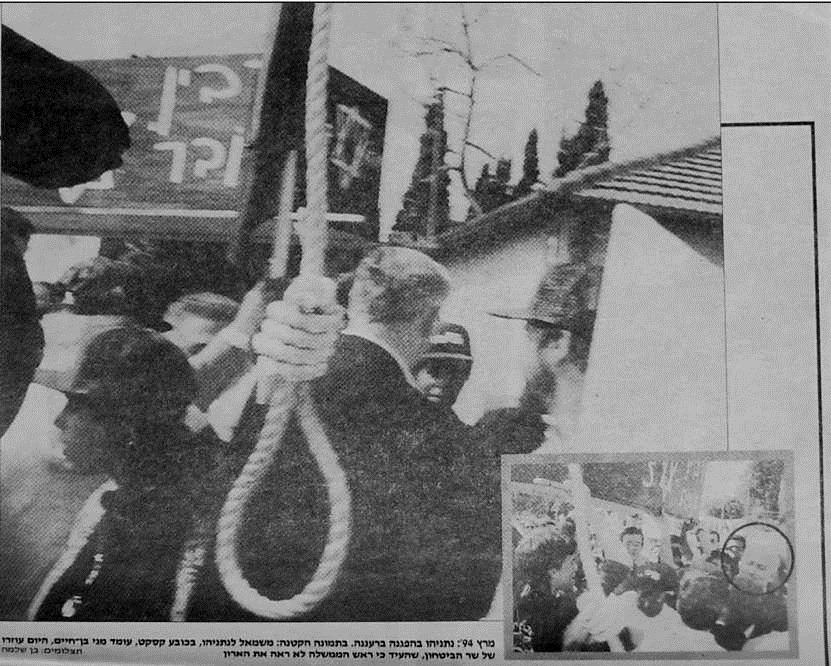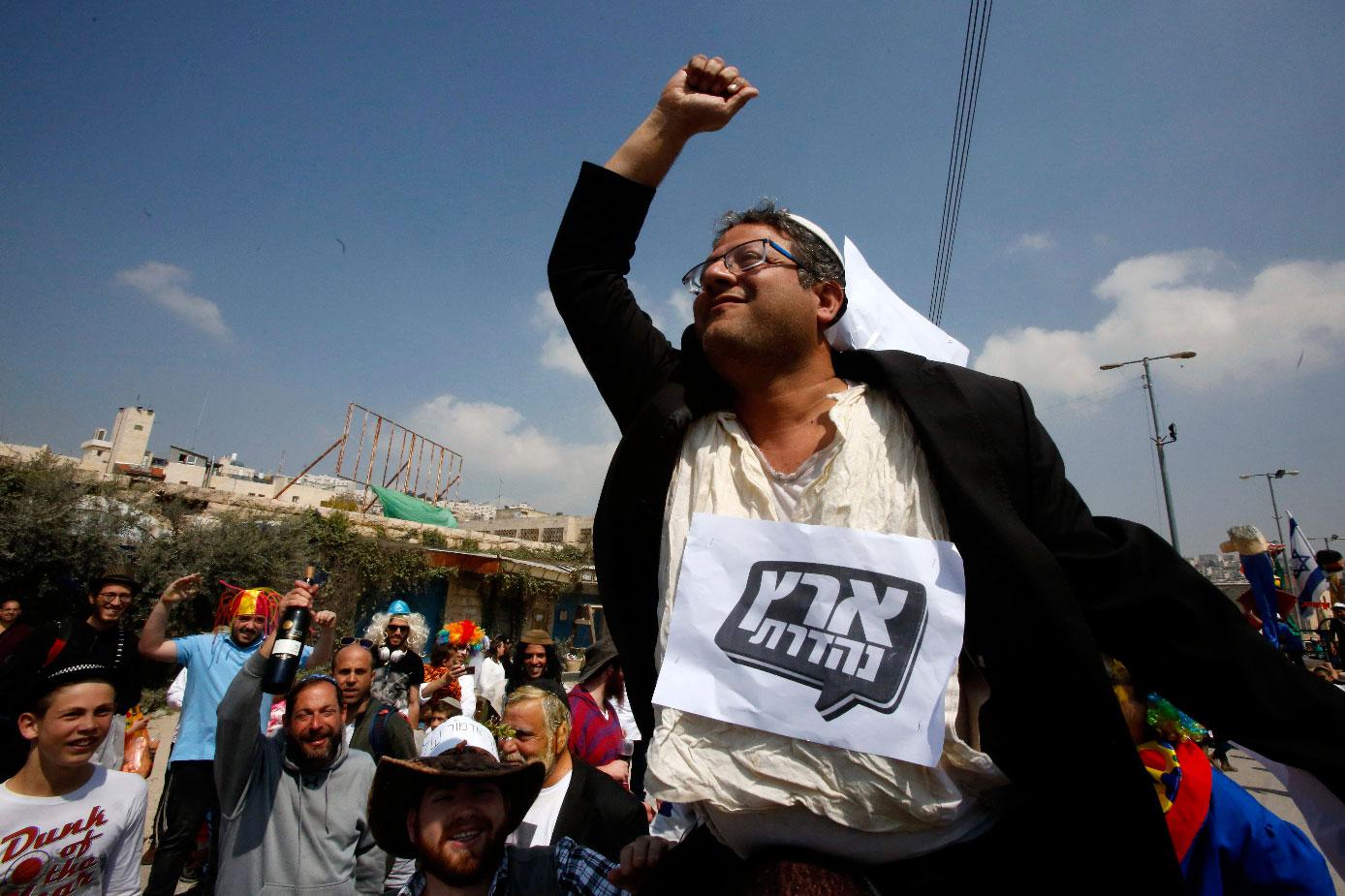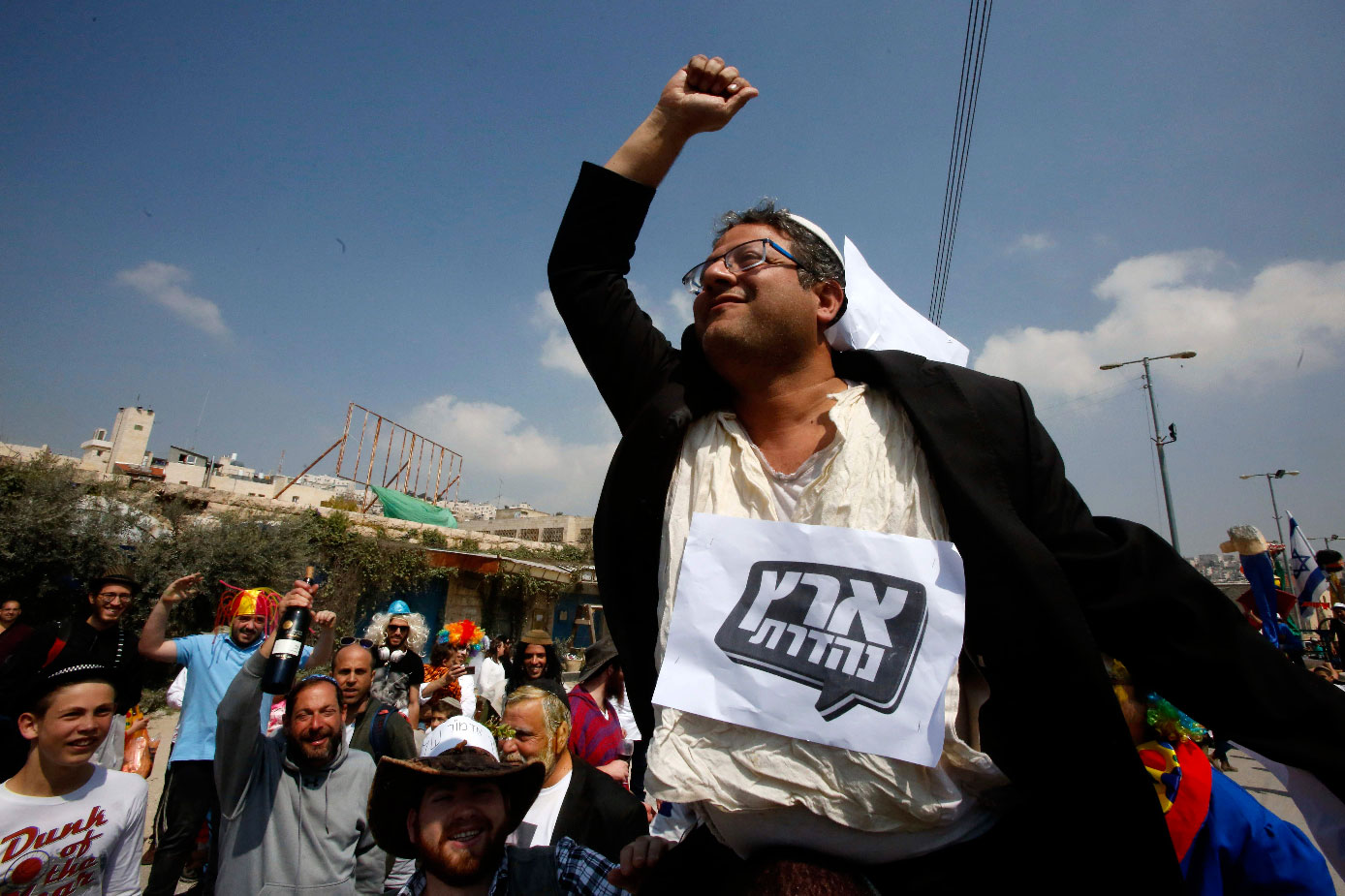
Once dominant, Israeli left-wing little more than an insult
TEL AVIV - The state of Israel was founded by the left, which dominated politics in the country's early years. In 1992 it took 61 of the 120 seats in the Knesset, or parliament. Nearly 30 years on, the left is forecast to take only around 25 seats in an election on Tuesday.
The left has been reeling after a series of setbacks - the assassination of Prime Minister Yitzhak Rabin in 1995 by an Israeli ultra-nationalist, the failure of his 1993 and 1995 Oslo accords to deliver peace with the Palestinians, many rounds of failed negotiations and years of bloodshed that have made both sides bitter and mistrustful.
Now, only 12 percent of Jewish Israelis identify themselves as left-wing, according to the Israel Democracy Institute. It was around double that a decade-and-a-half ago. Fifty-six percent now describe themselves as right-wing, up from 40 percent over the same period, and the amount who say they are centrists is little changed at 26.5 percent.
With Israeli Prime Minister Benjamin Netanyahu in power for the past decade and months away from becoming Israel's longest-serving leader if he is re-elected, the right is on the ascendant.
The only candidate with a chance of beating Netanyahu is not a leftist. Benny Gantz, a former general and political novice, belongs to a new party that is running on a centrist platform.
Seeking to win over right-leaning voters, Gantz, 59, has highlighted his military credentials and is a pragmatist.
Gantz was head of the Israeli military during the 2014 Gaza war between Israel and the militant Islamist group Hamas in which 2,100 Palestinians were killed, against an Israeli death toll of 67 soldiers and six civilians.
Gantz embraces that legacy, running a television ad which highlighted the number of Palestinian militants killed on his watch - although the large majority of casualties in that war were Palestinian civilians.
Careful not to alienate centrist voters, Gantz also chooses his words carefully on the issue that more than any other divides Israel's left and right: a "two-state solution" for the Israeli-Palestinian conflict.
Gantz nods to the left by saying Israel should pursue peace and end its dominion over the Palestinians but stops short of endorsing Palestinian statehood.
Most polls show Gantz's centrist Blue and White party leading Netanyahu's right-wing Likud in a straight race. But they also show a Netanyahu-led alliance of all the right-wing parties is more likely to secure a majority.
'Traitors'
Netanyahu has cast Gantz as a weak leftist who will endanger Israel's security by giving territorial concessions to the Palestinians, which is anathema to the right.
This is Netanyahu's standard play-book, say his opponents.
"The word 'left' is a tool to delegitimize everyone or anyone who's against Netanyahu," said Labour lawmaker Merav Michaeli. "'Left' has become like a curse, so it's not surprising that so many people are trying to avoid it."
"If there is really deep damage our prime minister has done to society, it's making the left-wingers traitors," said Labour supporter Liat Arbel. "We are as (much a) part of Israel as right-wingers."
In the build-up to the election, Netanyahu struck an alliance with anti-Arab and far-right politicians, some of whom seek to annex the Israeli-occupied West Bank.
This includes the far-right group Otzma Yehudit, or 'Jewish Power', an ideological successor to the outlawed, ultranationalist Kach party which called for the ethnic cleansing of Palestinians.
Its supporters are followers of a racist rabbi, Meir Kahane. Kach was labelled a terrorist organisation by the United States, the European Union and even Israel itself.
The ideology of Kahane, assassinated in New York in 1990, also inspired Baruch Goldstein, who carried out a massacre of 29 Palestinian worshippers in the occupied Palestinian city of Hebron in 1994.
Jewish Power's leader Itamar Ben Gvir acknowledges having a picture of Goldstein in his living room, but has reportedly said it is because he was a medical doctor who rescued Jews targeted in Palestinian attacks.
Several hundred Israeli settlers live in Hebron under heavy military guard -- including Ben-Gvir -- amidst around 200,000 Palestinians.
In 1995, when only 19 and in a time of turmoil following the Oslo accords with the Palestinians, Ben Gvir appeared on television with what he said was the stolen emblem from then prime minister Yitzhak Rabin's Cadillac.
Rabin was assassinated by an Israeli opposed to the Oslo accords later that year.
"We got to this symbol. We'll get to him," Ben-Gvir said at the time. Netanyahu himself has previously faced criticism for campaigning for office in 1995 to right-wing crowds baying for Rabin's assassination.

Ben Gvir, was given a hero's welcome when he arrived for the party on the recent Jewish holiday of Purim in Hebron, among Jewish settlers singing and applauding around him.
The festivities took place on al-Shuhada street, which used to be the centre of life in the town. Today, however, the Israeli army has closed the street off to Palestinians.
Jewish Power advocates removing "Israel's enemies from our land," a reference to Palestinians and Arab Israelis who they see as not accepting the Jewish state they envision. It also calls for Israel annexing the whole of the occupied West Bank, where more than 2.5 million Palestinians live.
"No way -- there's no way that they're racist," said Yehudit Katz, a resident of another West Bank settlement who came to celebrate for Purim in Hebron.
"The solution that they have is to keep the people that are not Jewish -- the Arabs, whoever -- that are loyal to the state of Israel as a Jewish homeland, and there are many Arabs like that," said Katz.
"We don't want terrorists. Terrorists can go live somewhere else," he added.
Netanyahu's deal that saw Jewish Power join two other far-right parties to run on the same electoral list drew disgust at home and among Jewish communities abroad, particularly in the United States.
But for Netanyahu, the deal ahead of what is expected to be a close election was pure politics. He defended it by saying he does not want any right-wing votes to go to waste as he eyes his next coalition.
No peace
Foremost among Netanyahu's critics for veering further right is the last left-winger to beat him in an election, Ehud Barak.
Like Gantz, Barak is a former military man. Now retired from politics, Barak, 77, says the far-right has become the driving force in Israeli politics, "like the tail wagging the dog." The left, he says, has lost steam.
"The left used to have a vision for Israel - a modern, Zionist, enlightened society on the cutting edge of the advanced world," said Barak, who was prime minister from July 1999 until March 2001.
"The right-wing has its own vision which is, in a way, dark, ultra-nationalist, somewhat racist and messianic. But it's a burning vision - so it motivates them."
Historian Gadi Taub, of Hebrew University's School of Public Policy, describes himself as a former leftist.
He says the left has become elitist, over-critical of their own society, and out of touch with mainstream Israelis, who are deeply sceptical about prospects for peace with Palestinians.
"The Israeli public is pragmatic. It drew its conclusions from the failure of the left's vision and it changed direction," said Taub.
For many Israelis, Barak played a big role in the left's decline. In 2000, he and Palestinian leader Yasser Arafat failed to agree a peace accord.
"From that day onwards the Israeli public believed that there was no partner, that 'they' don't want peace," said Angela Godfrey-Goldstein, a veteran Israeli peace activist. "Israelis hunkered down."
The outbreak of a Palestinian intifada, or uprising, a few months later drove the sides even further apart. Palestinian resistance fighters carried out shootings and suicide bombings, while the Israeli army carried out air strikes and raids on refugee camps.
Opinion was further hardened when Israel pulled its soldiers and settlers out of Gaza in 2005, only for Hamas to seize control of the territory two years later.
Since then, Israeli officials have used the Islamist militant group's rise in power to justify and consolidate Israel's illegal settlement program and occupation of Palestinian territory.
If he is to secure victory, Gantz may have to convince voters he is in the model of former commanders turned politicians, such as Rabin and Ariel Sharon, who was prime minister from March 2001 until April 2006.
Gantz was asked about the comparison with Rabin at an election event in Tel Aviv on Tuesday.
"To be compared to Yitzhak Rabin would be nothing short of the best compliment I can think of," he replied. "Rabin was centre, a bit left, a bit right, however you want to define him."


